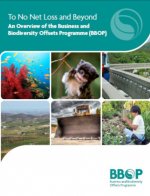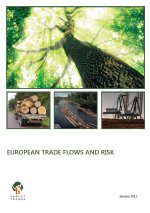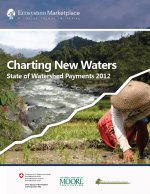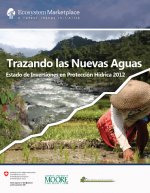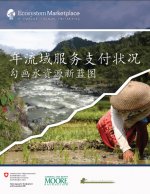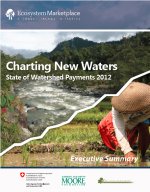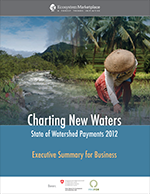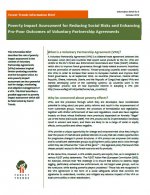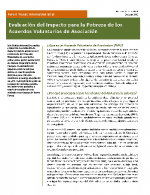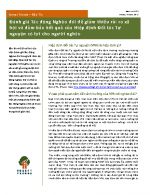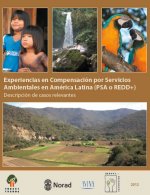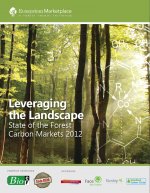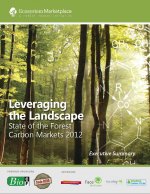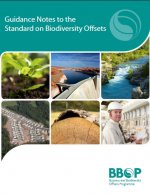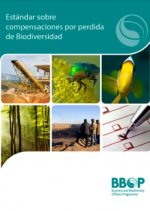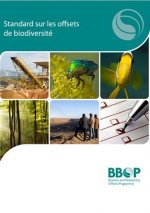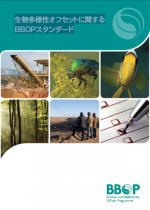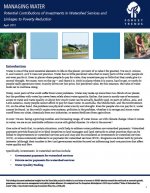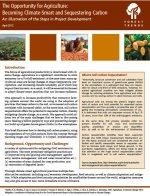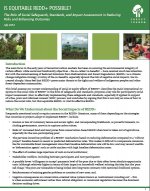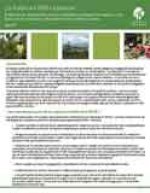To No Net Loss and Beyond
An Overview of the Business and Biodiversity Offsets Programme (BBOP)
By BBOPThis updated Overview document with its Principles on Biodiversity Offsets, introduction to the Standard on Biodiversity Offsets, and the accompanying supporting materials have been prepared by the Business and Biodiversity Offsets Programme (BBOP). Its aim is to help developers, conservation groups, communities, governments and financial institutions wishing to consider and develop best practice related to […]
European Trade Flows and Risk
By Rupert Oliver, Kerstin Canby - Forest Industries Intelligence Limited, Forest TrendsIllegal logging, as defined in the EU Timber Regulation (EUTR), is the harvesting of timber in contravention of the laws and regulations of the country of harvest. Illegal logging is a global epidemic with significant negative economic, environmental and social impacts. Recent studies indicate that illegal logging accounts for 50–90 percent of the volume of […]
Charting New Waters
State of Watershed Payments 2012
By Genevieve Bennett, Nathaniel Carroll, Katherine HamiltonState of Watershed Payments 2012 is the second installment of the most comprehensive inventory to date of initiatives around the world that are paying individuals and communities to revive or preserve water-friendly features of the landscape. The number of initiatives that protect and restore forests, wetlands, and other water-rich ecosystems has nearly doubled in just […]
Dependent Documents
Trazando las Nuevas Aguas
By Genevieve Bennett, Nathaniel Carroll, Katherine Hamilton - Ecosystem Marketplace, Ecosystem Marketplace, Ecosystem Marketplace2012年流域服务支付状况
勾画水资源新蓝图 - 执行摘要 (Charting New Waters - Exec Summ in Chinese)
By Genevieve Bennett, Nathaniel Carroll, Katherine Hamilton - Ecosystem Marketplace, Ecosystem Marketplace, Ecosystem MarketplaceExecutive Summary: Charting New Waters
State of Watershed Payments 2012
By Genevieve Bennett, Nathaniel Carroll, Katherine HamiltonState of Watershed Payments Report (Executive Summary for Business)
By Genevieve Bennett, Nathaniel Carroll - Forest Trends' Ecosystem Marketplace, Forest Trends' Ecosystem MarketplaceEmail Signup
Subscribe to any of Forest Trends’ mailing lists to keep up with the news, publications, and events that interest you.
Having Trouble?
If you experience any technical difficulties on our site, please contact Genevieve Bennett, Communications Manager.
Poverty Impact Assessment for Reducing Social Risks and Enhancing Pro-Poor Outcomes of Voluntary Partnership Agreements
Forest Trends Information Brief No. 4
By Michael Richards - Forest TrendsThis Information Brief describes the role of poverty impact assessment in the context of Voluntary Partnership Agreements (VPAs) between tropical timber-producing countries and the European Union. Ex ante poverty impact assessment can be a powerful tool for design, monitoring and adaptive management of a VPA. This Brief describes a possible approach to poverty impact assessment […]
Dependent Documents
Evaluación del Impacto para la Pobreza de los Acuerdos Voluntarios de Asociación
Forest Trends Information Brief No. 4
By Michael Richards - Forest TrendsĐánh giá Tác động Nghèo đói để giảm thiểu rủi ro xã hội và đảm bảo kết quả của Hiệp định Đối tác Tự nguyện có lợi cho người nghèo
Bản tin Forest Trends số 4
By Michael Richards - Forest TrendsExperiencias en Compensación por Servicios Ambientales en América Latina
By Sebastian Charchalac SantayState of the Forest Carbon Markets 2012
Leveraging the Landscape
By Molly Peters-Stanley, Katherine Hamilton, Daphne Yin - Ecosystem Marketplace, Ecosystem Marketplace, Ecosystem MarketplaceThe report, which aggregates data from 415 individual forest carbon projects historically, was published Thursday by Forest Trends’ Ecosystem Marketplace, a world-leading provider of news, data and analytics on environmental markets and investments in conservation. The report examines a variety of strategies for injecting financial resources into projects that save or plant forests that capture […]
Dependent Documents
Executive Summary: Leveraging the Landscape
State of the Forest Carbon Markets 2012
By Molly Peters-Stanley, Katherine Hamilton, Daphne Yin - Ecosystem Marketplace, Ecosystem Marketplace, Ecosystem MarketplaceStandard on Biodiversity Offsets
By BBOPThis Standard on Biodiversity Offsets has been prepared by the Business and Biodiversity Offsets Programme (BBOP) to help auditors, developers, conservation groups, communities, governments and financial institutions that wish to assess biodiversity offsets against the BBOP Principles, Criteria and Indicators.
Dependent Documents
Managing Water
Potential Contributions of Investments in Watershed Services and Linkages to Poverty Reduction
We are facing a growing number, and increasing range, of water issues. As with climate change, when it comes to water, we are on an inevitable collision course with global disaster. So what is the answer? One suite of tools that, in certain situations, could help to address water problems are watershed payments. Watershed payments […]
The Opportunity for Agriculture
Becoming Climate-Smart and Sequestering Carbon
The future of agricultural productivity is intertwined with climate change. Agriculture is a significant contributor to GHG emissions (10-12% of all emissions); at the same time, many agricultural areas are facing changes in mean temperature, precipitation, and increasing climate variability, all of which may impact their harvests. As a result, it will be essential for […]
Is Equitable REDD+ Possible?
The Role of Social Safeguards, Standards, and Impact Assessment in Reducing Risks and Enhancing Outcomes
By Michael Richards - Forest TrendsThe main focus in the early years of terrestrial carbon markets has been on assuring the environmental integrity of carbon offsets, while social and biodiversity objectives – the so-called ‘co-benefits’ – have received much less attention. But with the mainstreaming of Reduced Emissions from Deforestation and Forest Degradation (REDD+) as a climate change mitigation strategy, […]

